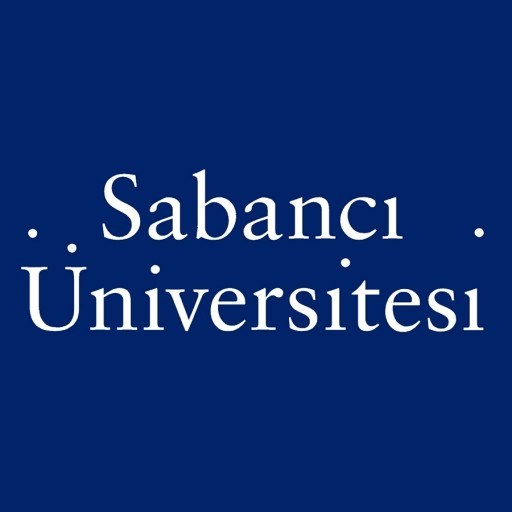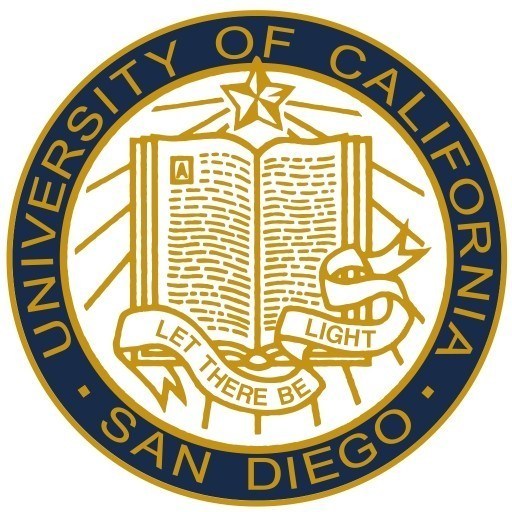Photos of university / #unibirmingham
The Metallurgy and Materials program at the University of Birmingham offers a comprehensive education in the science and engineering of metals, alloys, ceramics, polymers, and composite materials. Designed to equip students with a deep understanding of material properties, processing techniques, and application methods, this course prepares graduates for a wide range of careers within industries such as aerospace, automotive, construction, electronics, and energy. The curriculum combines theoretical fundamentals with practical laboratory work, allowing students to develop critical analytical skills and hands-on experience in material characterization, failure analysis, and advanced manufacturing processes. Students will explore topics including materials thermodynamics and kinetics, mechanical behavior, corrosion, nanomaterials, and sustainable materials, ensuring they are well-versed in both traditional and cutting-edge technologies. The program emphasizes the importance of innovation and research, encouraging students to engage in projects that address real-world challenges such as lightweighting, resource efficiency, and environmental impact. With access to state-of-the-art facilities and close industry links, students benefit from internships and collaborative projects, providing valuable insight into industry practices and future employment opportunities. The program also offers flexibility through optional modules, enabling students to tailor their studies according to their interests and career goals. Graduates from this program are highly sought after for roles in research and development, quality assurance, process engineering, and technical consulting. The University of Birmingham’s strong research reputation and vibrant academic community create an enriching environment that fosters critical thinking, innovation, and professional growth. Whether students aim to pursue further postgraduate study or enter the workforce directly after graduation, the Metallurgy and Materials program provides a solid foundation in materials science and engineering, preparing them to contribute to advances in technology and society.
The BSc Metallurgy and Materials programme at the University of Birmingham offers students an in-depth understanding of the properties, processing, and applications of metals and materials in a wide range of industries. This comprehensive course is designed to develop students' knowledge of how materials behave under different conditions, equipping them with the skills necessary to innovate and improve materials used in sectors such as aerospace, automotive, construction, electronics, and manufacturing. Throughout the programme, students explore fundamental principles of materials science, including structure-property relationships, phase transformations, and thermodynamics, alongside practical laboratory techniques and advanced manufacturing processes.
Students will engage with topics such as extractive metallurgy, corrosion and surface engineering, materials characterization, and the development of new materials to meet modern technological challenges. The curriculum balances theoretical knowledge with hands-on laboratory work and project-based learning, fostering critical thinking and problem-solving abilities. The programme also emphasizes sustainability and environmentally responsible engineering practices, preparing graduates to contribute effectively to sustainable development goals within the materials industry.
In the later stages of their studies, students have opportunities to specialise in areas such as light metals, advanced composites, nanomaterials, and electronic materials. The course includes industry placements and opportunities for work experience, allowing students to apply their learning in real-world settings and build valuable professional networks. Moreover, the university's strong links with industry leaders provide insights into current trends and future developments in metallurgy and materials engineering.
Graduates of the BSc Metallurgy and Materials programme are well-equipped for careers in research and development, quality assurance, manufacturing, technical consultancy, and academia. Many alumni go on to pursue postgraduate studies or obtain professional accreditation with relevant engineering institutions. With a solid foundation in the science and engineering of materials, graduates can contribute to technological innovation and sustainable solutions in a rapidly evolving global market.
Students enrolling in the Metallurgy and Materials degree program at the University of Birmingham are expected to meet a set of rigorous academic requirements designed to ensure their preparedness and capability to succeed in this challenging field. Applicants typically possess a strong background in science and mathematics, with A-levels or equivalent qualifications in subjects such as chemistry, physics, and mathematics being highly desirable. A minimum grade of AAA or equivalent is generally required for entry, although competitive applicants may present higher qualifications. For international students, proof of proficiency in English through IELTS or TOEFL scores is necessary; for example, an IELTS overall score of at least 6.5, with no sub-score below 6.0, is usually accepted.
In addition to academic qualifications, candidates are evaluated on their problem-solving skills, practical laboratory experience, and interest in materials science. Personal statement and references also play a role in the selection process, highlighting the applicant's motivation, research interests, and extracurricular activities related to science and engineering. As part of the application process, prospective students may be encouraged to demonstrate familiarity with fundamental concepts in materials science, such as the structure-property relationships, phase diagrams, and manufacturing processes.
Once admitted, students are required to complete core modules covering fundamental aspects of metallurgy, materials characterization, thermodynamics, and material processing technologies. They must also undertake laboratory work designed to develop practical skills in materials testing, microscopy, and data analysis. The program includes theoretical modules complemented by project work, often involving real-world industrial case studies, to develop critical thinking and problem-solving abilities.
Students are expected to participate actively in coursework, seminars, and group projects, fostering teamwork and communication skills essential for professional practice. Throughout the program, students are encouraged to engage with industry placements or internships, which are highly recommended for gaining practical experience and enhancing employment prospects after graduation. To successfully complete the degree, students must pass all required modules and fulfill assessment criteria, which may include written exams, coursework assignments, presentations, and project reports. Final-year students typically undertake a significant research project or dissertation, demonstrating their ability to apply learned concepts to solve complex materials-related problems.
Overall, the program promotes a comprehensive understanding of materials science, preparing graduates for careers in research, development, manufacturing, and management within the metals, ceramics, polymers, and interdisciplinary materials sectors. The university maintains high academic standards, ensuring that all students possess the technical expertise and innovative mindset required to advance the field of metallurgy and materials engineering.
The Metallurgy and Materials degree program at the University of Birmingham offers a range of financing options to support students throughout their studies. Tuition fees for UK and international students are published annually and typically vary depending on the student's residence status. For UK students, the tuition fee for undergraduate programmes, including Metallurgy and Materials, is covered in part by government funding schemes, such as the Student Loans Company, which provides maintenance loans and tuition fee loans. International students are required to pay full tuition fees, which can range approximately from £20,000 to £25,000 per year.
Students have access to various financial support mechanisms, including scholarships, bursaries, and grants. The university offers merit-based scholarships for high-achieving students, which can significantly reduce the financial burden. Additionally, there are subject-specific bursaries and external funding opportunities for students pursuing science and engineering degrees. Students are encouraged to explore the university’s dedicated scholarships webpage for updated listings and application procedures.
Many students finance their education through a combination of personal savings, family assistance, and external grants. The university also provides information about part-time work opportunities on and near campus, enabling students to earn supplementary income while studying. The Careers Service at Birmingham assists students in finding suitable part-time roles and internships, which can help cover living expenses.
For postgraduate students, financing options include research council grants, university scholarships, and private sponsorships. Research students may also be eligible for arts and social sciences research funding, depending on the project scope. Payment plans are available to spread tuition costs over multiple installments.
Living costs for students include accommodation, food, transportation, and personal expenses, which vary based on lifestyle and location. The university estimates these expenses to be around £9,000 to £12,000 annually. Students are advised to budget accordingly and seek financial advice from university support services.
The university’s Financial Support Office provides guidance on financial planning, managing student loans, and accessing emergency funds if needed. Overall, the University of Birmingham makes concerted efforts to ensure that students can access the necessary financial resources to successfully complete their Metallurgy and Materials degree program.
The Metallurgy and Materials program at the University of Birmingham offers a comprehensive education in the principles and applications of materials science and engineering. This program is designed to equip students with a deep understanding of the fundamental properties of metals, ceramics, polymers, and composites, along with the modern techniques used to analyze and manipulate these materials. Students will explore topics such as materials processing, structural analysis, failure mechanisms, and sustainable practices in materials engineering. The course emphasizes practical skills through laboratory work, industry projects, and collaborative research, preparing graduates for careers in sectors like aerospace, automotive, manufacturing, and research and development.
Throughout the program, students gain knowledge about various metallurgical processes including extraction, refining, heat treatment, and alloy development. The curriculum integrates principles of physics, chemistry, and engineering to foster innovative problem-solving abilities. In addition, the program explores the environmental impact of materials manufacturing and promotes sustainable development strategies within the industry. Advanced modules may cover areas such as nanomaterials, biomaterials, corrosion science, and materials modelling.
Students benefit from access to cutting-edge laboratories and facilities, enabling hands-on experience with techniques such as microscopy, spectroscopy, and mechanical testing. The program is structured to combine theoretical coursework with practical application, including opportunities for internships and industrial placements, which enhance employability and industry readiness. The University of Birmingham's strong links with industry partners provide networking opportunities and access to real-world challenges faced by materials scientists and metallurgists.
Graduates of the Metallurgy and Materials program are well-equipped to pursue careers in research and development, quality assurance, materials design, and consulting. They may also continue their studies in postgraduate research or gain professional accreditation in relevant engineering disciplines. The program aims to develop not only technical expertise but also critical thinking, teamwork, and communication skills essential for leadership in the dynamic field of materials science.








